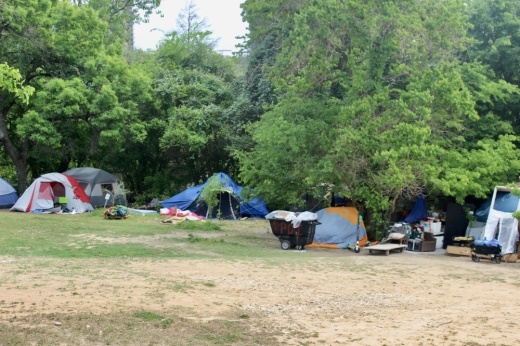The two properties, 3511 Manor Road and 4011 Convict Hill Road, will not be immediately available for conversion into homeless campsites. The vacant properties are part of Austin's holdings to eventually be used for affordable housing and for the time being would require rezoning to accommodate camps and potential prefabricated structures or "microshelters," according to a city statement. If city officials elect to move forward on the conversion of one or both properties into an encampment, a public meeting and online survey process about the sites will be launched in August, city staff said.
The next step in the properties' possible move toward serving as designated campsites will come next week when staff are expected to brief City Council members during their July 27 work session. With the sites' path forward still to be determined, Homeless Strategy Officer Dianna Grey and Kimberly McNeeley, director of the Austin Parks and Recreation Department, said staff remain engaged in preparations for possible conversions of both locations.
In Grey and McNeeley's previous update on the search for shelter options, including designated campgrounds, the pair estimated the two finalists of the selection process—unidentified at that time—could cost the city around $3 million combined to set up. Staff are also looking into the expansion of other shelter options, including congregate shelters and converted hotels, in addition to the use of parking lots for overnight stays.
The push to find suitable places to relocate members of the city's homeless population came in the wake of the passage of Proposition B in May. With that ordinance in effect, the city has gradually phased in a ban on activities, including public camping, that has seen the Austin Police Department conduct outreach and warnings related to the measure throughout the city.
Austin is presently in the third of four planned phases of the camping ban rollout, centered on police officers issuing written warnings or citations for repeat contacts as well as possible arrests for anyone refusing to leave areas deemed to be dangerous.





